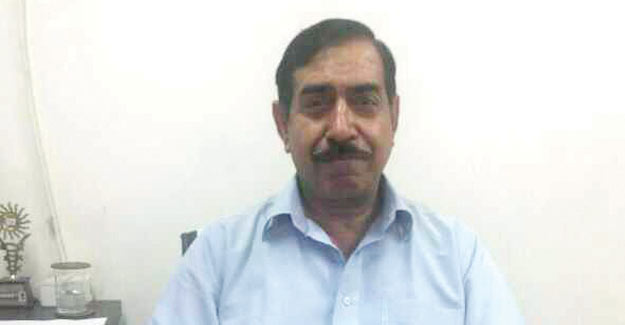
Pratibha Syntex, through its training centre's has created a ready pool of skilled workers for the apparel industry
Pratibha Syntex has taken up a number of sustainability initiatives. How and when did this come about?
Sustainable production and practices is at the core of our operations today. We plan to be the global leader in sustainable textile products and practices, switch to 100 percent sustainable materials in production, reduce water and carbon footprint by 50 percent till 2015, and establish sustainable design and innovation center in India and Europe.
What are the company's initiatives in human resource development?
Here, we have in place a large number of projects. The company founded Vasudha project in 1999, with 475 farmers, to expand the organic cotton farming culture in India.
Today, this project has 30,000 farmers across 475 villages in four states in India, covering 130,000 acres of farmland including organic, Fair Trade, BCI, and transitional cultivation. Corporate social responsibility is high on the company's agenda.
We run a number of community programmes for our workers and their families, we run schools, go beyond the fulfilment of the laws of the land to ensure that our workers earn rightfully.
Indian textile and apparel factories are finding it difficult to get workers. How is Pratibha facing this scenario?
It is true that the industry is facing a labour shortage. I will say that due to our policies and projects, the situation at Pratibha Syntex is much better. We are one of the few companies in the country that does not use contract workers, our workers are on the company's pay roll.
This ensures that they enjoy a number of benefits of being in permanent employment with the company. For Pratibha, this is not a seasonal industry, we have orders and work through the year.
Pratibha Syntex also runs training centres. Can you tell us about this?
We run a number of training centres in the country. We have an in-house training department, and more than 150 machines in our training centres. We have around 3-4 centres in Chattisgarh, we are also planning to start training centres in Orissa and Jharkhand, by the end of August 2014. Our centres train around 200-300 people every month, to work in the garment industry as packers, helpers, ironer, cutters, etc. A number of companies in the north have recruited our students, many find employment in our own factories. The aim is to help the youth in backward areas or areas of turmoil, and givethem a means of livelihood. The aim is also to ensure a ready pool of trained workers for the apparel industry. By August 2014, we will also become the training partners of Apparel Skill Council and Textile Skill Council. We are in the process of signing an MoU with the AEPC and CITI which have formed these councils, respectively, on December 26, 2013.
Which are your main markets for your green products?
Europe has a high demand for such products, so obviously that is a very big market for us. We supply to reputed international brands such as Patagonia, C&A, Esprit, Walmart, and many more.
Bangladesh had emerged as an important market for India's cotton and yarn suppliers. How is this market for Pratibha Syntex?
We supply some yarn to Bangladesh, but this is not yet a focus market for us. The political turmoil has also not helped much. Besides, our client list does not include buyers who are looking for GSP benefits.
Textile Excellence
If you wish to Subscribe to Textile Excellence Print Edition, kindly fill in the below form and we shall get back to you with details.












